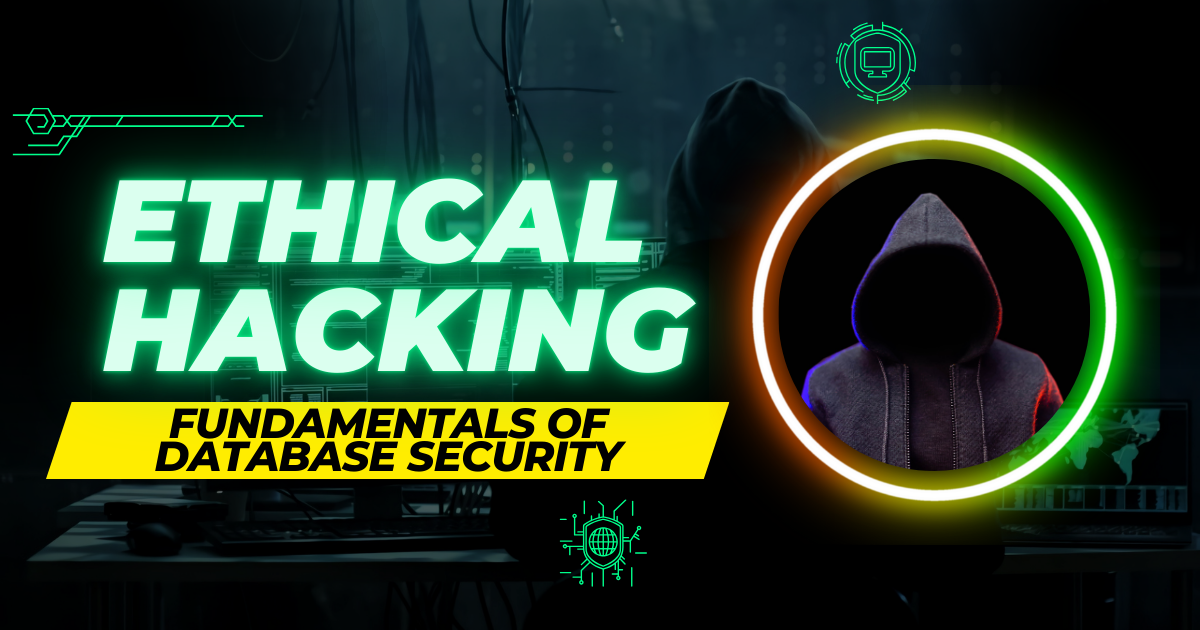Understanding the Fundamentals of Database Security
 Devyush Raturi
Devyush Raturi
8Databases are the custodians of an organization's most valuable asset: its data. From customer records to financial transactions, databases hold the information that drives businesses. Securing these repositories is paramount, and ethical hackers play a crucial role in ensuring their integrity and confidentiality. This article will introduce the fundamental principles of database security, providing a foundation for understanding how to protect these critical systems.
The Importance of Database Security
A database breach can have devastating consequences, including financial losses, reputational damage, and legal liabilities. Attackers target databases to steal sensitive information, disrupt operations, or gain unauthorized access to systems. Therefore, implementing robust security measures is essential.
Key Principles of Database Security
Confidentiality: Ensuring that only authorized users can access sensitive data. Encryption, access controls, and data masking are used to maintain confidentiality.
Integrity: Maintaining the accuracy and consistency of data. Hashing, digital signatures, and transaction logs are used to ensure data integrity.
Availability: Ensuring that authorized users can access data when needed. Redundancy, backups, and disaster recovery plans are used to maintain availability.
Authentication: Verifying the identity of users and applications attempting to access the database. Strong passwords, multi-factor authentication, and certificate-based authentication are used.
Authorization: Granting appropriate permissions to users and applications based on their roles and responsibilities. Role-based access control (RBAC) and least privilege principles are used.
Auditing: Tracking and logging database activity to detect suspicious behavior and ensure accountability. Audit logs are essential for forensic investigations.
Common Database Vulnerabilities
SQL Injection: Attackers inject malicious SQL code into database queries to manipulate data or gain unauthorized access.
Weak Authentication: Using weak passwords or lacking multi-factor authentication can allow attackers to gain access to the database.
Insufficient Authorization: Overly permissive permissions can allow users to access sensitive data or perform unauthorized actions.
Data Exposure: Sensitive data may be exposed due to improper configuration or lack of encryption.
Default Credentials: Using default usernames and passwords makes databases vulnerable to attack.
Unpatched Databases: Outdated database software may contain known vulnerabilities that attackers can exploit.
Lack of Encryption: Sensitive data stored without encryption is vulnerable to theft.
Backups without proper protections: Backup files can be as vulnerable as the live database.
Security Measures
Strong Authentication: Implement strong password policies and multi-factor authentication.
Least Privilege Principle: Grant users only the necessary permissions to perform their tasks.
Input Validation: Validate and sanitize user input to prevent SQL injection and other attacks.
Encryption: Encrypt sensitive data both in transit and at rest.
Regular Patching: Keep database software up to date with the latest security patches.
Firewall Protection: Use firewalls to restrict access to the database server.
Database Auditing: Enable database auditing to track and log database activity.
Regular Backups: Perform regular backups of the database and store them securely.
Vulnerability Scanning: Regularly scan the database for vulnerabilities.
Database Hardening: Follow secure configuration guidelines to harden the database server.
The Role of Ethical Hackers
Ethical hackers play a vital role in securing databases by:
Conducting Penetration Tests: Simulating real-world attacks to identify vulnerabilities.
Performing Vulnerability Assessments: Identifying and analyzing potential weaknesses.
Providing Remediation Recommendations: Advising database administrators on how to fix identified vulnerabilities.
Performing Security Audits: Reviewing security policies and procedures.
Database Security Tools
SQLMap: An open-source penetration testing tool that automates the process of detecting and exploiting SQL injection vulnerabilities.
Nessus Essentials: A vulnerability scanner that can identify database vulnerabilities.
Burp Suite: A web application security testing tool that can be used to test for SQL injection and other database vulnerabilities.
Conclusion
Database security is a critical aspect of cybersecurity. By understanding the fundamental principles and implementing effective security measures, organizations can protect their valuable data from unauthorized access and cyberattacks. Ethical hackers play a crucial role in this process, helping to identify and mitigate vulnerabilities before they can be exploited by malicious actors. Continuous vigilance and proactive security measures are essential for maintaining a secure database environment.
Subscribe to my newsletter
Read articles from Devyush Raturi directly inside your inbox. Subscribe to the newsletter, and don't miss out.
Written by
